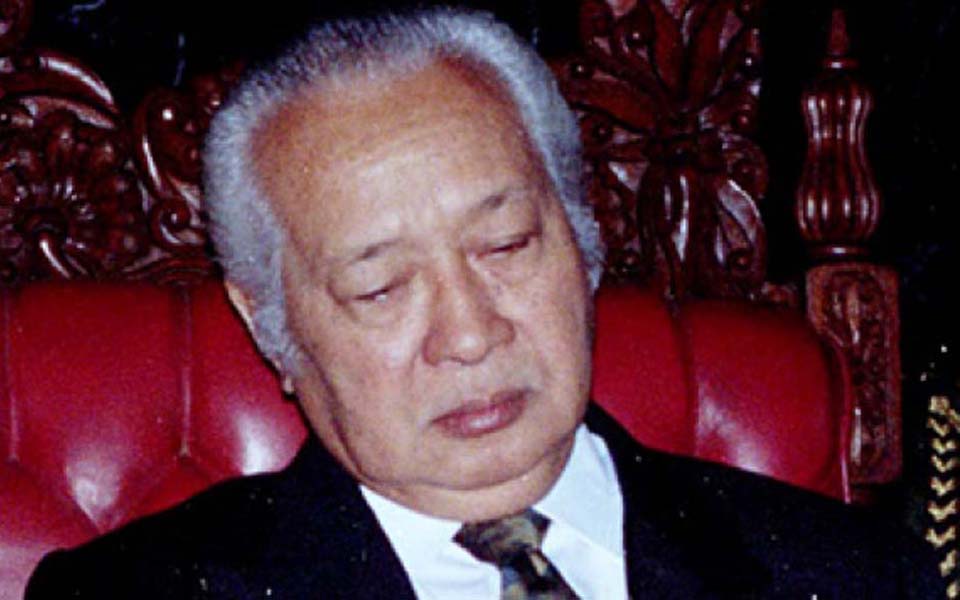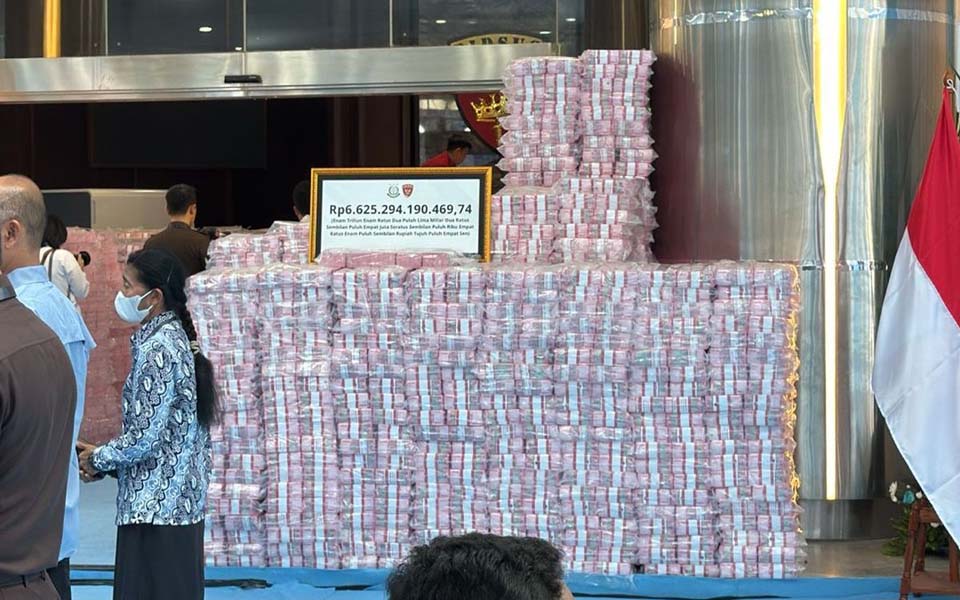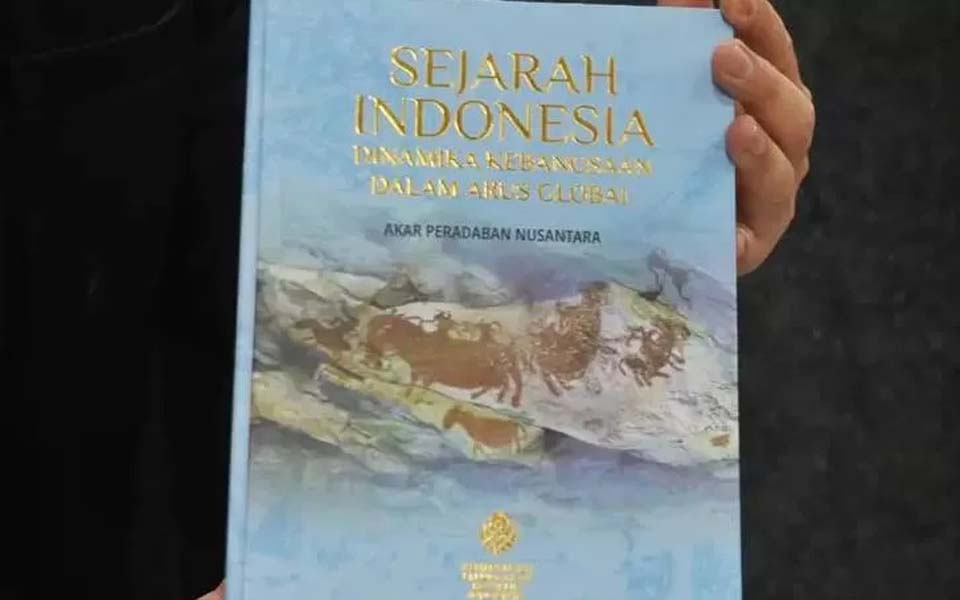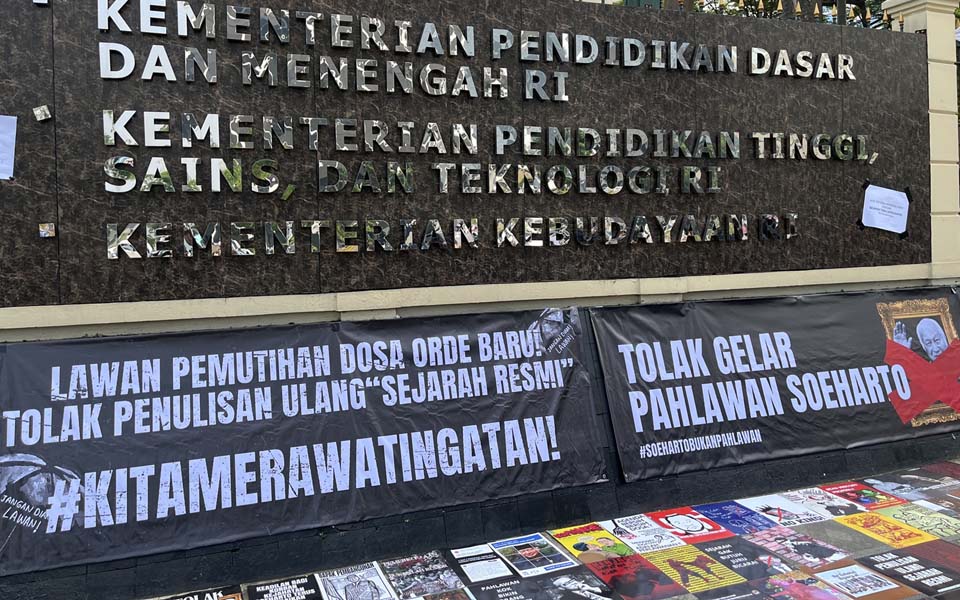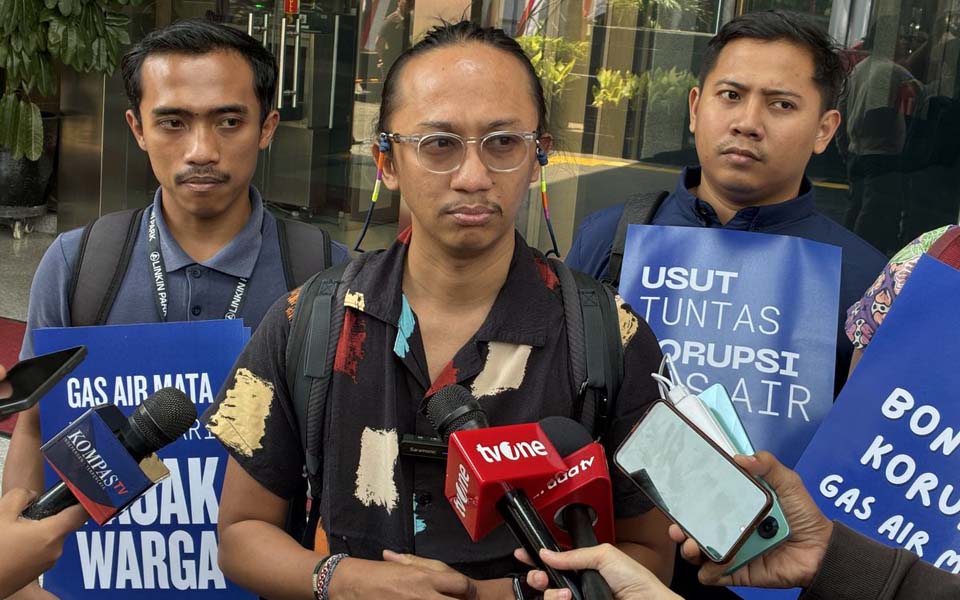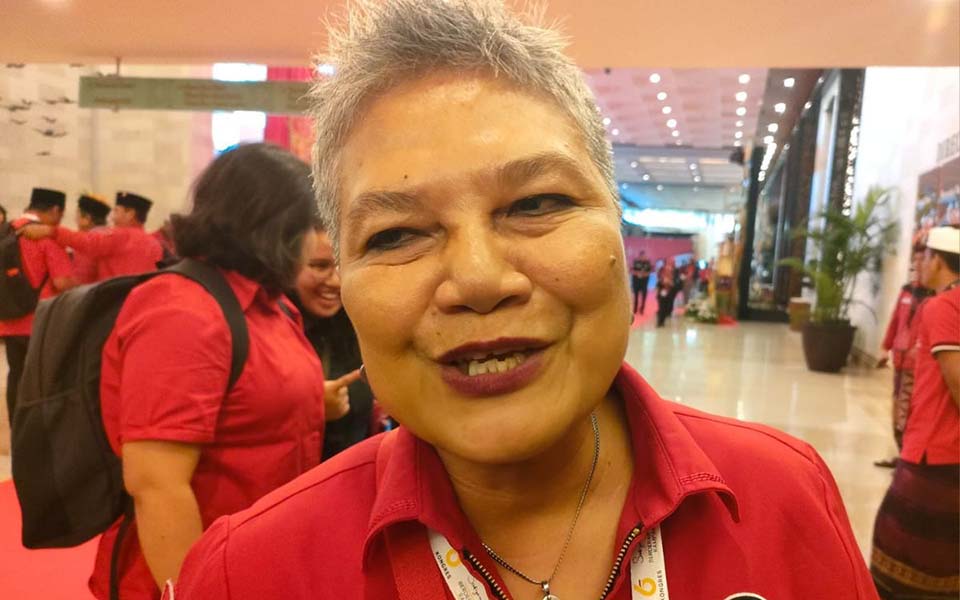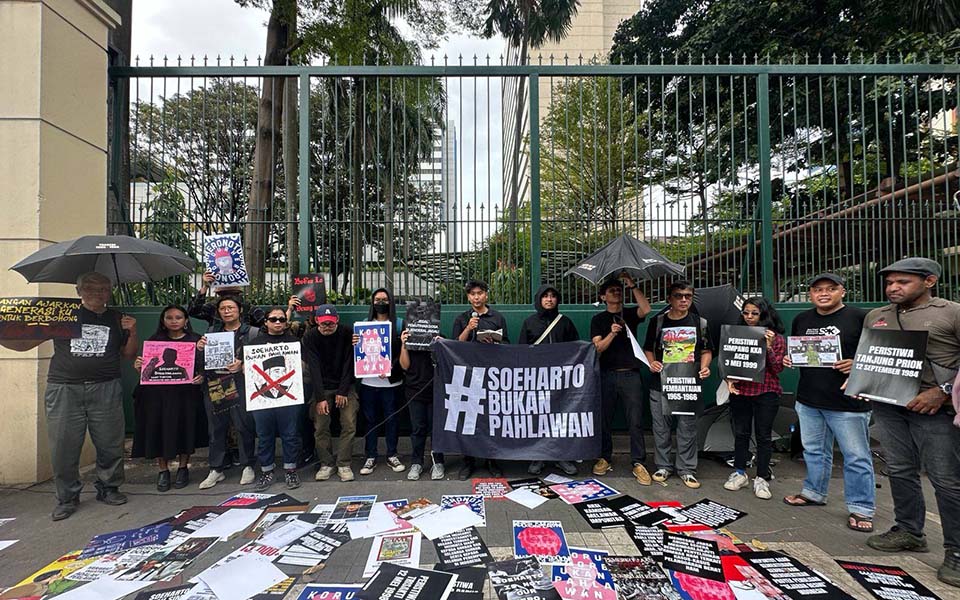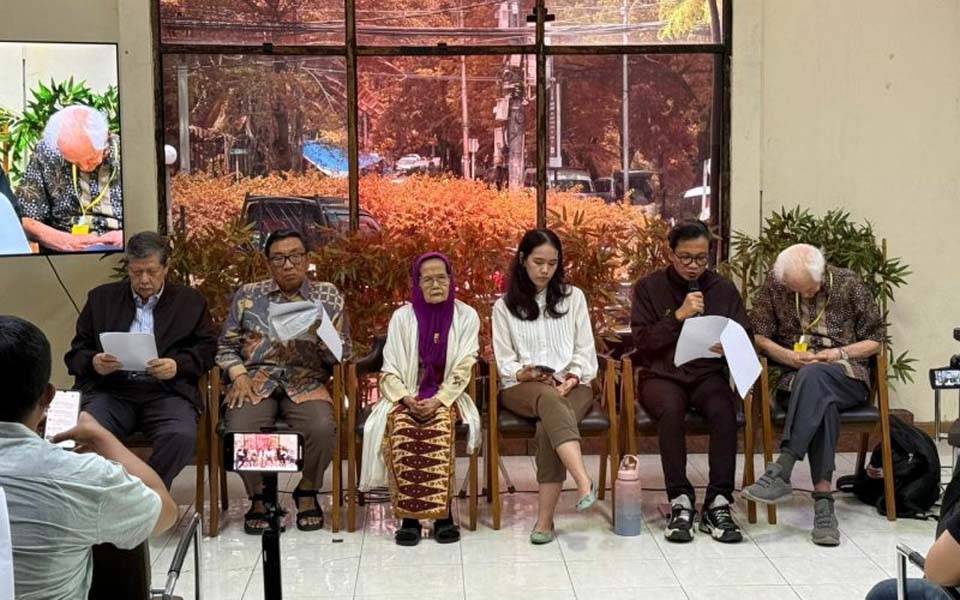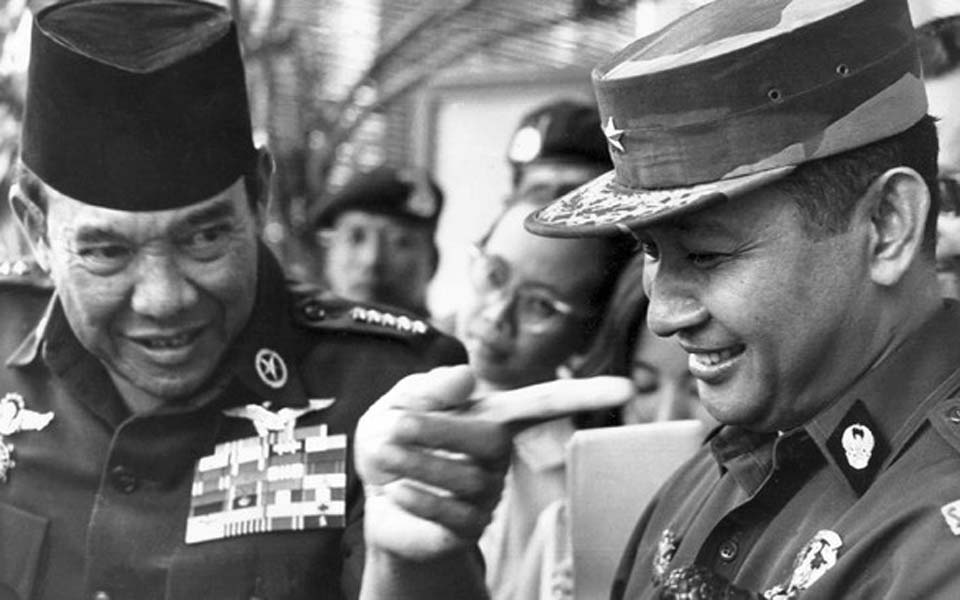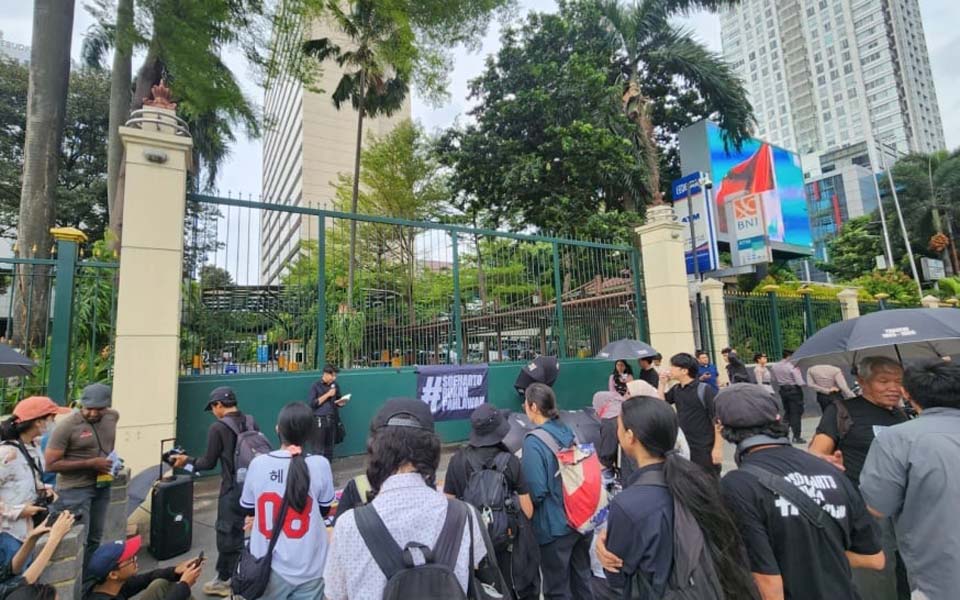Sultani – The positive tone of the reaction to the announcement by the United Nations and the World Bank in which they rated Suharto as the biggest corruptor of state assets in the world indicates the public’s level of anger over the deadlock in the process of investigating the former president of Indonesia. This momentum should be used by the government to be more serious about finalising the corruption case against the former ruler.
This warning is not excessive, bearing in mind that since Suharto stepped down from his throne, out of the four presidents that have followed him not one has succeeded in bringing the former president to trial. Whereas Suharto’s crimes were looked into by the Attorney General’s Office (AGO) three months after he resigned.
The evidence discovered by the AGO at the time indicated that over a period of 32 years, Suharto accumulated wealth for himself, his family and his cronies through the seven foundations he headed. Unfortunately, the money that poured into these foundations was obtained from private and state-owned companies through presidential decrees issued by Suharto. The losses to the state as a result of Suharto’s actions are estimated to have amounted to 571 million US dollars (George Junus Aditjondro, Presidential Corruption, the Reproduction of the Oligarchy of Three Pedestals: The Palace, the Barracks and the Ruling Party, LkiS: Yogyakarta, 2006).
Similar findings were revealed by Time Magazine in its special edition titled Suharto Inc: How Indonesia’s Boss Built a Family Fortune. The May 24, 1999 edition of the magazine explicitly uncovered the wealth of Suharto, his family and cronies that is scattered across the four corners of the globe.
According to Time, in 1999 Suharto’s wealth amounted to 9 billion dollars US. Over the 32 years in power, Suharto also developed a business empire together with his family and colleagues through monopolistic practices in all aspects of Indonesia’s social life. From these business practices, Suharto was able to accumulate wealth that is estimated to be as much as 73.24 billion dollars US (659 trillion rupiah). This is an absolutely fantastic amount of money.
Suharto himself has, on one occasion, denied that he owns any wealth overseas. “I don’t have a single cent of money overseas”, he said on September 6, 1998, eight months after Time released its report. Unhappy with the Time report, Suharto submitted a defamation suit against the magazine. Whereas, at the same time Suharto was also facing an indictment by the AGO over corruption suspected of being committed through his seven foundations.
On the one hand, Suharto has consistently refused to attend his corruption hearings [on grounds of ill health]. Conversely however, he proactively sued Time Magazine for defamation. Although the state court and the court of appeals rejected Suharto’s suit against Time, Suharto did not give up. He even submitted an appeal with the Supreme Court.
On August 28, the Supreme Court issued a verdict in favor of Suharto. Time must now to pay 1 trillion rupiah to Suharto and issue a public apology in the mass media.
In a survey that specifically focuses on the investigation into Suharto’s wealth, it found that the Indonesian public seriously doubts the government’s serious in resolving the case. The majority of respondents said that the Supreme Court, the AGO and the police are not serious about resolving the corruption cases involving the former strong man of Indonesia.
The majority of respondents are convinced that Suharto has wealth that has been deposited overseas as was reported by Time.
It is because of this therefore, that the legal decision in favour of Suharto is considered to have violated the principles of justice. At least 63.9 percent of respondents feel that the Supreme Court’s verdict in the recent Suharto verses Time case was unjust. Two out of three respondents even feel that the punishment awarded against Time was excessive.
Suharto’s victory at the hands of the Supreme Court has further exposed the rotten state of law enforcement agencies and the system in upholding the law in Indonesia. It appears that public’s trust in law enforcement officials is not improving. At least 60 percent of respondents are not convinced that Indonesia’s law enforcement agencies are capable of investigating and recovering Suharto’s overseas wealth.
The pubic also doubts the government’s commitment to resolving the Suharto case. As many as 61.9 percent of respondents fell that the government, particularly President Susilo Bambang Yudhoyono, are incapable of investigating the case and recovering Suharto’s wealth.
Whereas, through the Stolen Asset Recovery (StAR) Initiative launched by the UN and the World Bank on September 17, both institutions are ready to assist developing countries in recovering assets stolen by corrupt leaders and combating internationally the flight of money resulting from these crimes. “There cannot be any haven that is safe for those who have stolen from the poor”, said World Bank President Robert B Zoellick.
Data based on the findings of Transparency International (2004) places Suharto’s name at the top of a list of 10 heads of state that are considered to have stolen state assets. The total amount of money stolen is between 15 and 35 billion dollars US.
The Indonesian public has long awaited another breakthrough in the Suharto corruption case. So it is not surprising if 62.4 percent of respondents welcome and agree with the UN announcement. They also think that is quite rational to rate the investigation of this corruption as being more important than accentuating Suharto’s past services to the country.
Not withstanding, the involvement of foreign parties in the case has also created a degree of controversy. Around 45.5 percent of respondents agree with the involvement of foreign parties, while 48.8 percent of respondents oppose foreign involvement. – Kompas Research and Development Division
[Translated by James Balowski.]





